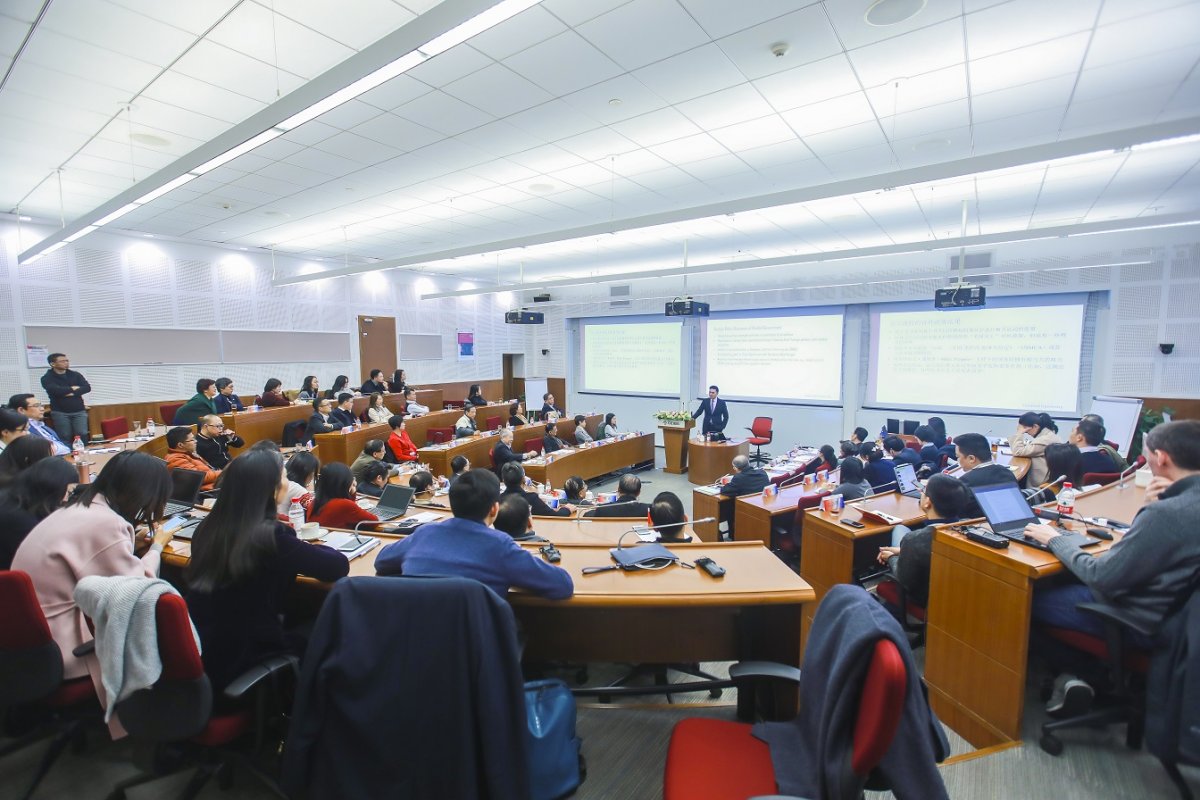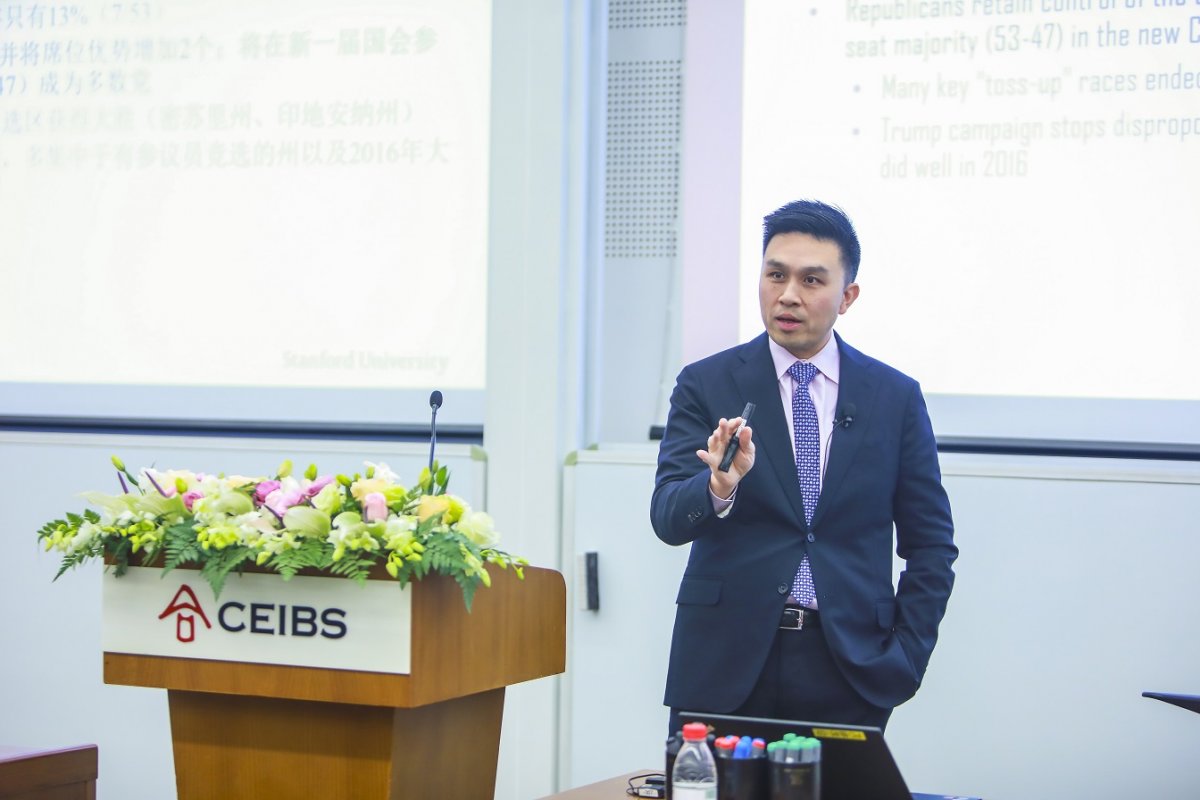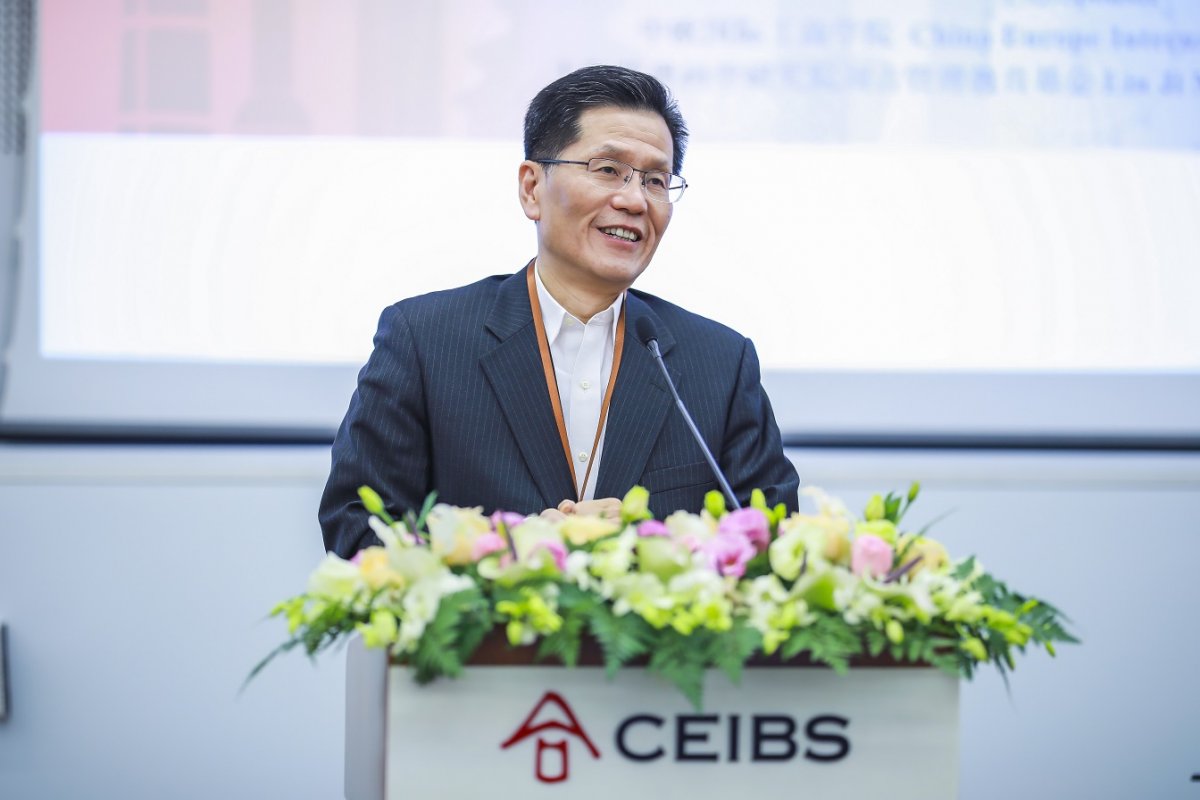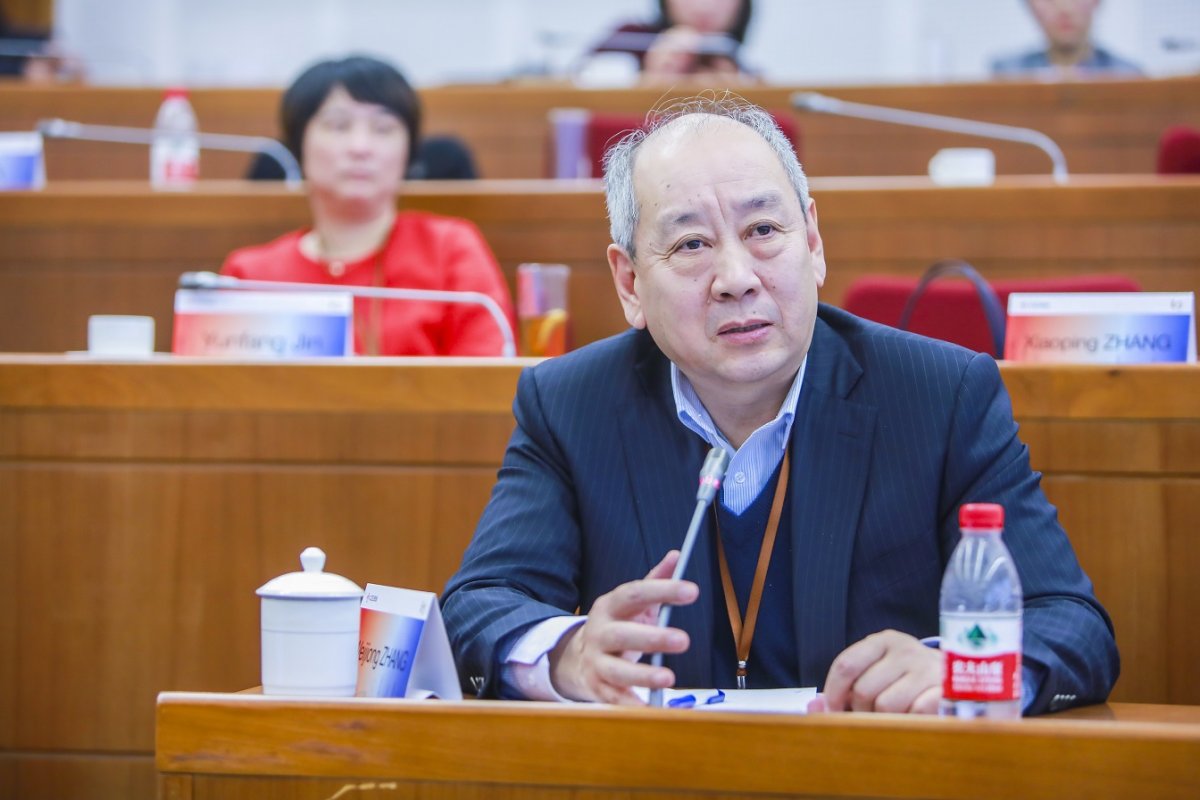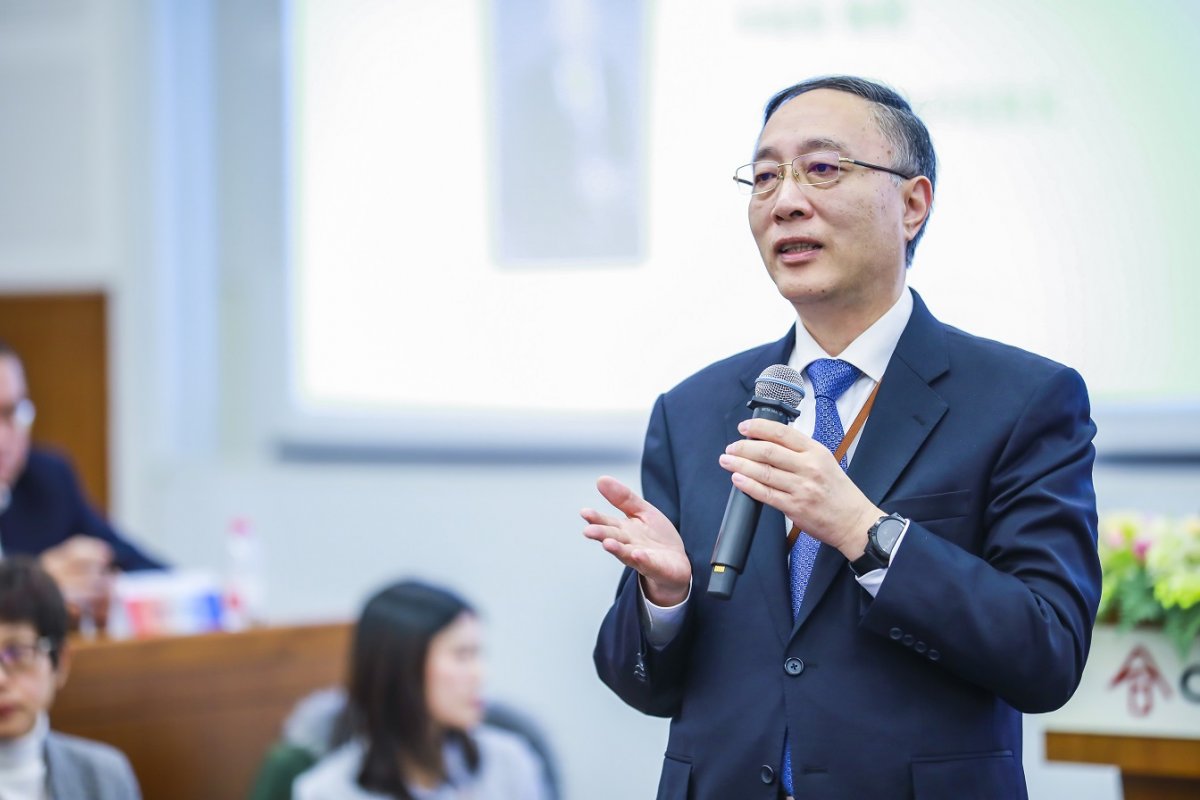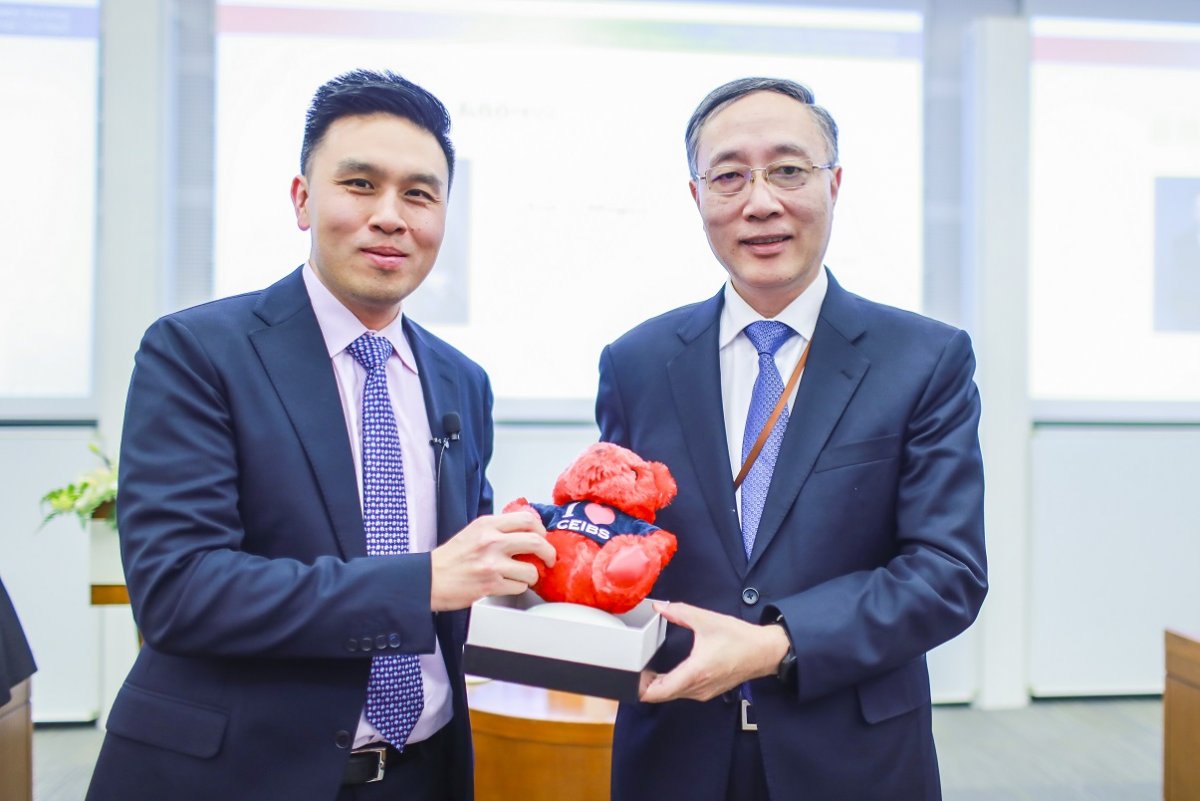Roundtable Highlights Importance of Strong China-US Ties
December 17, 2018. Shanghai – China-US relations in the current international context was the topic of a roundtable workshop hosted today at CEIBS Shanghai Campus with Stanford University Hoover Institution Research Fellow Dr. Lanhee J. Chen. The invitation-only event was co-organised by CEIBS and the Liu Ji Management Education Fund with the overall aim of enhancing understanding of American policy, as it relates to China, in the wake of the recent US midterm elections. The session was attended by CEIBS faculty and students, numerous VIP guests from other business and academic institutes, as well as CEIBS President Li Mingjun and Vice President and Co-Dean Zhang Weijiong.
In his opening address, Dr. Chen noted that the topic of US-China trade is “a very critical issue at a very critical time”. He also emphasised that “it is a time which some have described as a time of great tension, but [it is] also a time of great opportunity for both countries to develop a closer and deeper understanding of the ways in which we can work together for shared prosperity and a better world.”
As Dr. Chen explained, the results of the 2018 US midterm elections—one in which the Democrats regained control of the House of Representatives while the Republicans maintained a majority of seats in the Senate—reflect a deep division among Americans about a number of very important issues. Despite this split, however, he said he believes that at least one area in which most Americans are united has to do with their views on China-US relations (including trade). Importantly, the opinions of Americans is what largely influences President Trump’s decision making process.
“Domestic politics and the domestic constituency of the President drive his foreign policy-making, and the question of how and whether to proceed is dictated by how it will be seen by the domestic audience,” Dr. Chen stated. “When this President thinks about foreign policy, he thinks, ‘how does this impact [voters]? How does trade policy impact farmers in Iowa or car makers in Michigan?’”
Although the unpredictability of the current US President has left many expressing confusion, Dr. Chen said he believes Trump’s approach to issues such as trade make him both more changeable and more pragmatic.
“[President Trump] will conduct foreign policy on the basis of what he believes is in the best interest of the US at that point in time – which also means he’s more flexible in terms of his worldview and the things he cares about,” Dr. Chen said. “He is a deal-maker and he is much more focused on what it will take to get to a deal. What he cares about is, ‘how do I get to ‘Yes’? How do I get to a solution to advance the things I need to?’”
Dr. Chen added that he believes the US President’s focus on purely economic issues will pave the way for a quicker resolution to the current trade dispute. In addition, he said it is important to remember that the US economy fundamentally depends on a strong relationship with China.
“The US economy will not benefit from a deteriorated relationship with China. Even if you accept the reality that global supply chains are shifting and that there are opportunities to [move production from China to elsewhere], there is going to be an impact on the American economy,” he explained. “[As a result,] if the US President remains focused on keeping the economy strong, it will mean keeping the US-China relationship positive enough to make a positive contribution to the US economy.”
In line with this view, Dr. Chen told the audience that it is important for Chinese companies to emphasise the degree to which they are making a positive contribution to the US economy. He also pointed out that on-going dialogue is key to helping improve relations between the two countries overall.
“If you look at the American people, [when it comes to opinions about China] obviously now we’re in a period of relative negativity, but that doesn’t mean those opinions can’t change,” he said. “I think with a shared dialogue and the value of interaction between the US and China those opinions can turn around.”
Moreover, Dr. Chen said he believes, despite the at-times harsh use of rhetoric employed, that a commitment to continuing this dialogue is something that people in both China and the US greatly value.
“Active engagement between the US and China is the best course of action for both countries and continued strong engagement benefits the American people and Chinese people,” he affirmed. “On substance, the [US] administration has reinforced the notion that engagement is at the core of this relationship.”
Nevertheless, at the end of the day, any deal on US-China trade involving the current US President will have to have clear apparent economic benefits for American voters. On this point, however, Dr. Chen concluded that there is reason to be hopeful.
“I’m optimistic about the resolution of this trade situation in the next 90 days because the politics of the tariff policy are becoming unpopular. President Trump is going to want to get rid of them in a way that allows him to claim he has negotiated [a win],” he said. “Do you think this will be a spectacular deal? It doesn’t matter. Even if the substance of the deal isn’t great, President Trump will be able to convince the American people he’s done a lot.”






